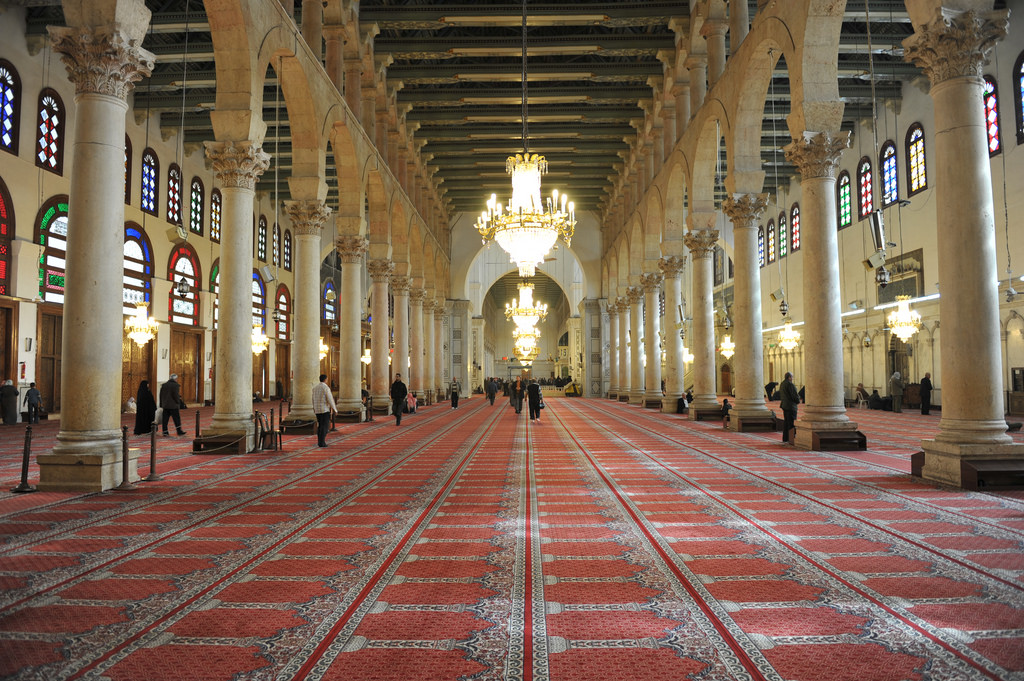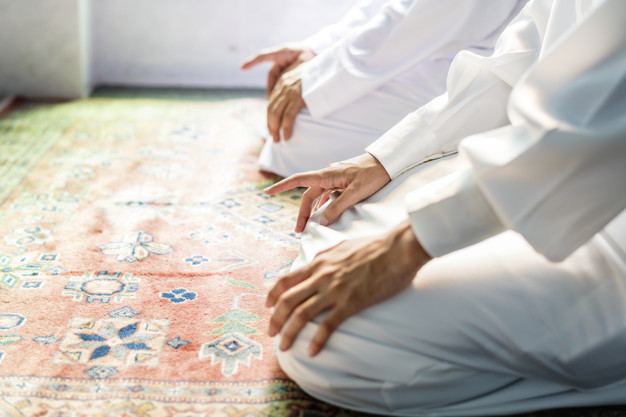Pilgrims, all donning the same garment regardless of ethnic or social background, perform rites and rituals of deeply symbolic meaning, some of which were originated by Abraham himself and others which recall events from his as well as his wife, Hager, and son, Ishmael’s lives.
It is also a time of supplication, personal prayers and penance. The Prophet Muhammad said:
“Whoever performs Hajj for the sake of God and does not utter any obscene speech or do any evil deed, will go back (free of sin) as his mother bore him.”
(Narrated by al-Bukhari, 1449; Muslim, 1350.)
Hajj symbolizes the oneness of human beings before God and the unity of the vast Muslim peoples of the Earth. It must be performed at least once in a lifetime, if a believer is physically and financially able to.
The pilgrimage begins on the 8th day of DhulHijjah (the last month of the Islamic lunar calendar) and ends on the 13th of the same month. The three days following the end of Hajj are a festival (eid) called Eid al-Adhah.
An account of the pilgrimage by civil rights activist, Malcolm X, conveys how moving and uplifting the experience can be:
“…For the past week, I have been utterly speechless and spellbound by the graciousness I see displayed all around me by people of all colors.”
“I have been blessed to visit the Holy City of Mecca, I have made my seven circuits around the Ka’ba, led by a young Mutawaf named Muhammad, I drank water from the well of the ZamZam. I ran seven times back and forth between the hills of Mt. Al-Safa and Al Marwah. I have prayed in the ancient city of Mina, and I have prayed on Mt. Arafat.”
“There were tens of thousands of pilgrims, from all over the world. They were of all colors, from blue-eyed blondes to black-skinned Africans. But we were all participating in the same ritual, displaying a spirit of unity and brotherhood that my experiences in America had led me to believe never could exist between the white and non-white.”
“… I have never before seen sincere and true brotherhood practiced by all colors together, irrespective of their color.”
“You may be shocked by these words coming from me. But on this pilgrimage, what I have seen, and experienced, has forced me to rearrange much of my thought-patterns previously held, and to toss aside some of my previous conclusions.”
“During the past eleven days here in the Muslim world, I have eaten from the same plate, drunk from the same glass, and slept on the same rug – while praying to the same God – with fellow Muslims, whose eyes were the bluest of blue, whose hair was the blondest of blond, and whose skin was the whitest of white. And in the words and in the deeds of the white Muslims, I felt the same sincerity that I felt among the black African Muslims of Nigeria, Sudan and Ghana.”




